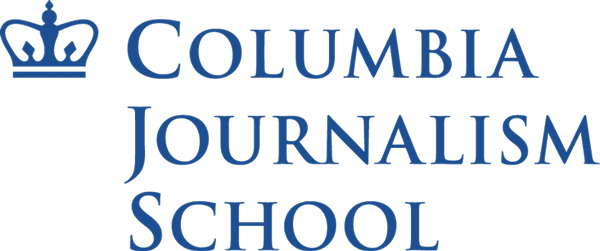
Comedian Danny O’Brien hosts the Comedy Crunch show on March 12 in Dublin’s Stag’s Head bar. (Credit: Dina Katgara)
DUBLIN – James Cadden, who runs a comedy show at Ha’penny Bridge Inn in Dublin, was an altar boy in his childhood Catholic church in County Monaghan. Now, he spends a good chunk of his time on stage telling jokes about religion.
“What do you call someone who doesn’t believe in God?” he asked during one recent set.
An audience member replied, “Atheist.”
Cadden corrected them with this retort, “Adult, correct, because I don’t believe in imaginary things.”
Cadden’s comeback is somewhat characteristic of Irish comedy. This is a divided island that has seen more than its fair share of scandal and conflict. The sex abuse scandals of the Catholic Church have played a role in many people abandoning their faith. And the Troubles, even 25 years after the Good Friday Agreement, continue to haunt everything from education to commerce to comedy.
“A lot of us comedians and Irish people overall have similar backgrounds when it comes to religion,” Cadden said in an interview, reflecting on his set. “Moving away from religion and finding an identity outside of it.”
Danny O’Brien, the host of another Dublin club, the Comedy Crunch show, said that religion and comedy have a “symbiotic relationship” in Ireland.
Like Cadden, O’Brien is a former Catholic altar boy. But he remembers his mom pulling him out of the program after noticing a priest acting “creepy,” putting his hands on his shoulders. He later found out that the priest was molesting his friends.
“She saved me,” O’Brien said in an interview, “and not many of my friends have been that lucky.” He thinks making light of the trauma while still talking about it is important because it calls out “what the Catholic Church has done and is still doing.”
Another topic that continues to surface during some Irish comedy shows is the ongoing conflict between Israel and Palestine. O’Brien tends to keep away from the topic in comedy sets, however, he has strong personal feelings about the topic.
“It’s boiling over in Ireland at the moment,” O’Brien said. “because Ireland has always seen itself as an invaded nation. If you went up to Derry, up in the north, there are Palestinian flags everywhere — they feel sympathy because they were oppressed.”
This is especially true for Northern Ireland, ground zero for the Troubles. In Derry, flags plaster the streets and often correspond to each religious communities’ majority areas.
In Derry on March 14, comedian Clayton J. Morrow took to the microphone at the Chicken Box Comedy show. Morrow minced no words.
“Loyalists are pathetic retards,” Morrow said during one of Chicken Box comedy’s pandemic broadcasts. “And you know they’re pathetic,” Morrow said, “when it’s 2020 and they’re still parading over 1690.” That date comes up often in Loyalist history. It was the year of the Battle of the Boyne — a win for the Republic of Ireland.
Sectarian and religious jokes make some uncomfortable, but they almost always get a laugh.
“There’s an urge to say that we’ve moved on,” said Luke McGibbon, who runs Belfast’s Best of Three comedy club, a show that gives comics three minutes to elicit laughter from the crowd. “But the fact of the matter is that people still give [religious jokes] big laughs and they’re laughing because they’re relating and they’re relating because it’s still part of people’s lives.”
He said that comedy, even if uncomfortable, is a way to work through difficult conversations, whether it’s sectarianism, Catholic Church sex abuse or Israel/Palestine.
One recent night at the Chicken Box, Morrow took on the Israel-Gaza war. He passionately ranted about the media’s biased coverage of Israel’s attack on Gaza. “Why [is] Hamas the only nefarious party in this shit?” Morrow asked to an eerily still room punctuated only by strained chuckles.
In Derry, Rory McSwiggins started Chicken Box Comedy show in 2018, and its weekly Thursday night shows at Bennigan’s Bar has been Derry’s hub for humor ever since. McSwiggins grabbed the microphone: “I don’t know if youse know much about sectarianism?” The audience laughed knowingly.
Bennigan’s Bar sits close to the River Foyle, the water that once divided Derry into distinct Protestant and Catholic neighborhoods. The bar is just a 12-minute walk south from the Peace Bridge, built in 2011, more than 10 years after the 1998 Good Friday Agreements, to connect the two communities. Just as the bridge physically closes the distance, the Chicken Box Comedy show allows people from various backgrounds to surface tensions through comedy, working through discomfort on an uneven road to healing.
“The whole Catholic-Protestant thing, the whole Catholic-Protestant thing,” McSwiggins repeated drolly. Sectarianism has been top of mind for the past half a century since the violence of the Troubles started in the 1960s. Even as physical violence between Catholics and Protestants simmered since 1998, embedded stereotypes and hostilities persist.
And the humor is not limited to comedy clubs. The British sitcom “Derry Girls” has turned international attention to understanding the Troubles through a humorous lens ever since it first aired in 2018. One scene particularly exemplifies the tensions: the main characters attend an educational integration program that attempted to point out similarities between Protestants and Catholics — but they only found differences.
Although coping with trauma through humor often takes more cognitive effort than other serious methods, humor can be more effective in regulating negative emotions, according to a 2013 Stanford Psychological study.
Another comic, Justin Cass, also performed that night in Derry. Cass grew up in County Monaghan, just six miles outside the Northern Ireland border. Monaghan is a part of Ulster County and was supposed to be a part of the United Kingdom, but because of its high Catholic population, it was relegated to the Republic. In his set, Cass described his hometown as somewhere between “Disneyland and the Troubles.”
While Cass’ shtick relies on his long pauses – which he pokes fun at, asking the crowd if he looks like an off-duty priest, to which an audience member from the Belfast “Best of Three” show on March 16 yelled out, “No, but you talk like one!” – he appreciates the lack of “woke culture” in the north.
Although he is not a religious person, Cass said that there is no getting around the fact that Ireland is a religious country. He said he tries to avoid religion, but it always finds a way into the comedy, admitting that his best jokes make fun of Protestants.
“I’m conscious that there might be some Protestants in the room,” he said, reflecting on his performances. Cass’ observation leans into one of the three philosophical theories of humor, the theory of superiority, or eliciting amusement based on pointing out someone else’s inferiority.
“Everybody thinks that their religion is the better one,” Cass said. “The most common thing is to make fun of people from the minority religion in the room.” He said he’s working on trying to learn humor that everybody understands. “The aim is to make everybody laugh and not feel excluded.”
He said that Northern Ireland is his favorite place to gig because they’re more appreciative of “dark and edgy” entertainment. He caters his shows differently in the North than when he performs in the South. With fewer tourists in the North, the comedy gets more specific, and less catered toward an international audience — allowing an opening for uncomfortable conversations about sectarianism.
Graeme Watson is another comedian from Northern Ireland and has performed and hosted in the comedy scene since 2008. Watson grew up during the Troubles in Larne, a small seaside village about 25 miles north of Belfast.
“I remember growing up in that area and the atmosphere was thick with tension with the Troubles, the violence, the bombs going on,” Watson said. “So, comedians like Patrick Kielty [current host of Ireland’s Late Late Show] pierced through that, kind of making fun of that and opened the door for the possibility of what would happen later on: peace, the Good Friday Agreement.”
Watson, spurred by his Protestant upbringing and deep-rooted interest in comedy, initially pursued a Ph.D. at Belfast’s Queen’s University focused on a custom topic: the politics of happiness. While he did not meet a Catholic person before attending university, Watson was surrounded by people focused on Catholic stereotypes. He later left the program to pursue comedy full-time.
Watson said that comedy allows people to laugh and break down the Protestant-Catholic barriers and become friends. “Humor is what bonds people.”
“I think people from that era naturally have a sense of humor, because it’s quite hard,” Watson said. “You’d probably be very depressed otherwise.”
Watson also helped run a comedy workshop for the Northern Ireland Human Rights Festival every December, helping train human rights leaders to perform comedy. He spent four weeks helping human rights workers turn about their difficult experiences involving causes like homelessness into comedy.
Another comedian, Adam Laughlin, who was born two years after the Good Friday Agreement and performed at both the Chicken Box comedy and the Best of Three set in Belfast, said that all comics, even if they’re younger, still talk about the Troubles because it still impacts where they’re from.
If you don’t want to deal with the Troubles, he suggested, just don’t do comedy in Northern Ireland.
About the author(s)
Dina Katgara is a news reporter from South Florida specializing in the intersection between religion and culture at Columbia Journalism School.




